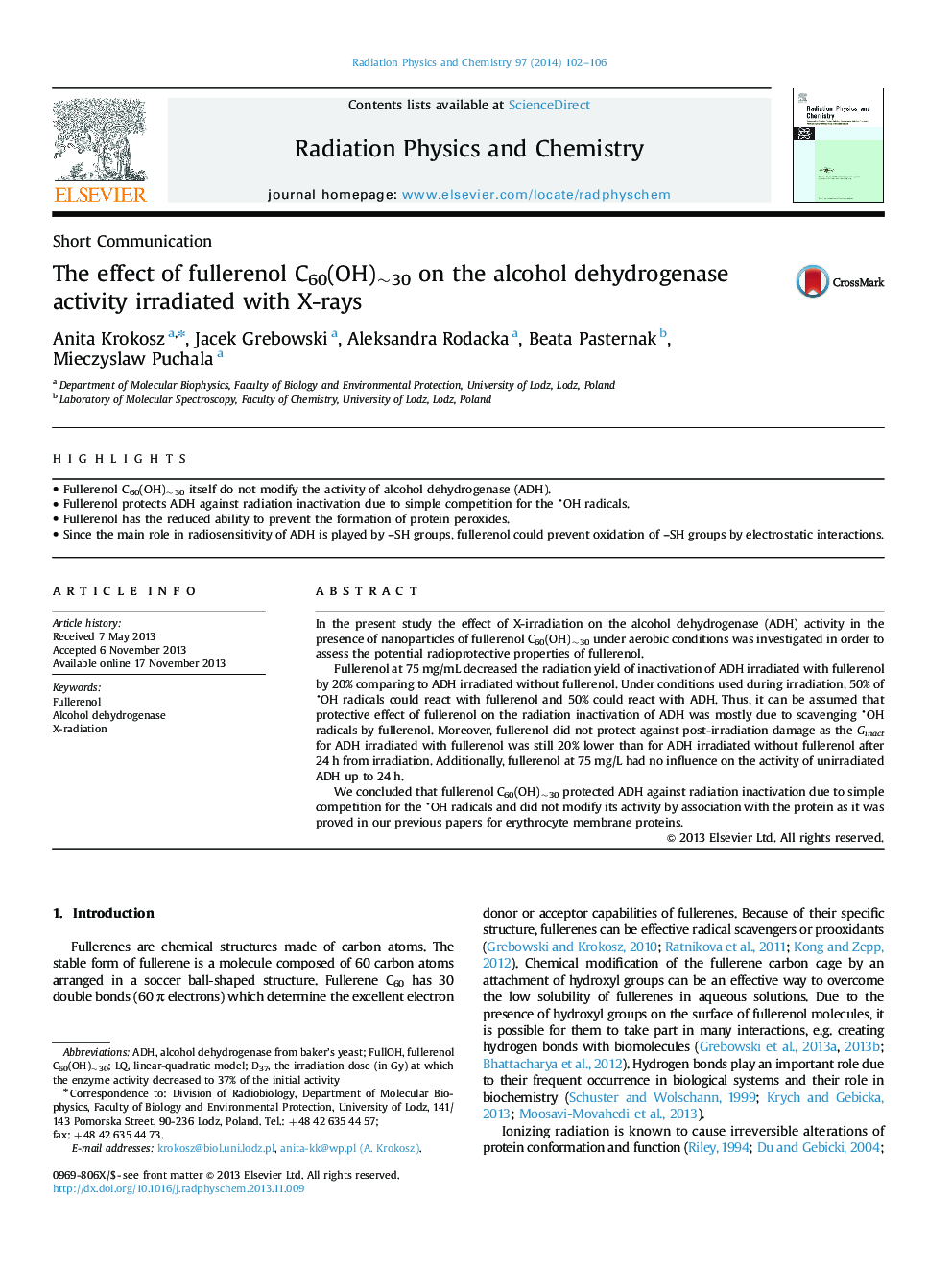| Article ID | Journal | Published Year | Pages | File Type |
|---|---|---|---|---|
| 1886180 | Radiation Physics and Chemistry | 2014 | 5 Pages |
•Fullerenol C60(OH)~30 itself do not modify the activity of alcohol dehydrogenase (ADH).•Fullerenol protects ADH against radiation inactivation due to simple competition for the OH radicals.•Fullerenol has the reduced ability to prevent the formation of protein peroxides.•Since the main role in radiosensitivity of ADH is played by –SH groups, fullerenol could prevent oxidation of –SH groups by electrostatic interactions.
In the present study the effect of X-irradiation on the alcohol dehydrogenase (ADH) activity in the presence of nanoparticles of fullerenol C60(OH)~30 under aerobic conditions was investigated in order to assess the potential radioprotective properties of fullerenol.Fullerenol at 75 mg/mL decreased the radiation yield of inactivation of ADH irradiated with fullerenol by 20% comparing to ADH irradiated without fullerenol. Under conditions used during irradiation, 50% of OH radicals could react with fullerenol and 50% could react with ADH. Thus, it can be assumed that protective effect of fullerenol on the radiation inactivation of ADH was mostly due to scavenging OH radicals by fullerenol. Moreover, fullerenol did not protect against post-irradiation damage as the Ginact for ADH irradiated with fullerenol was still 20% lower than for ADH irradiated without fullerenol after 24 h from irradiation. Additionally, fullerenol at 75 mg/L had no influence on the activity of unirradiated ADH up to 24 h.We concluded that fullerenol C60(OH)~30 protected ADH against radiation inactivation due to simple competition for the OH radicals and did not modify its activity by association with the protein as it was proved in our previous papers for erythrocyte membrane proteins.
